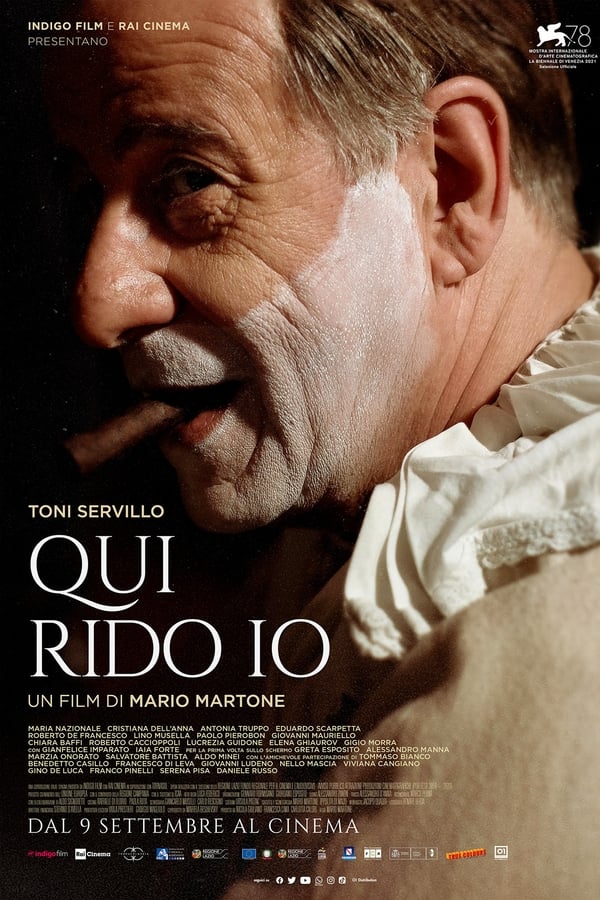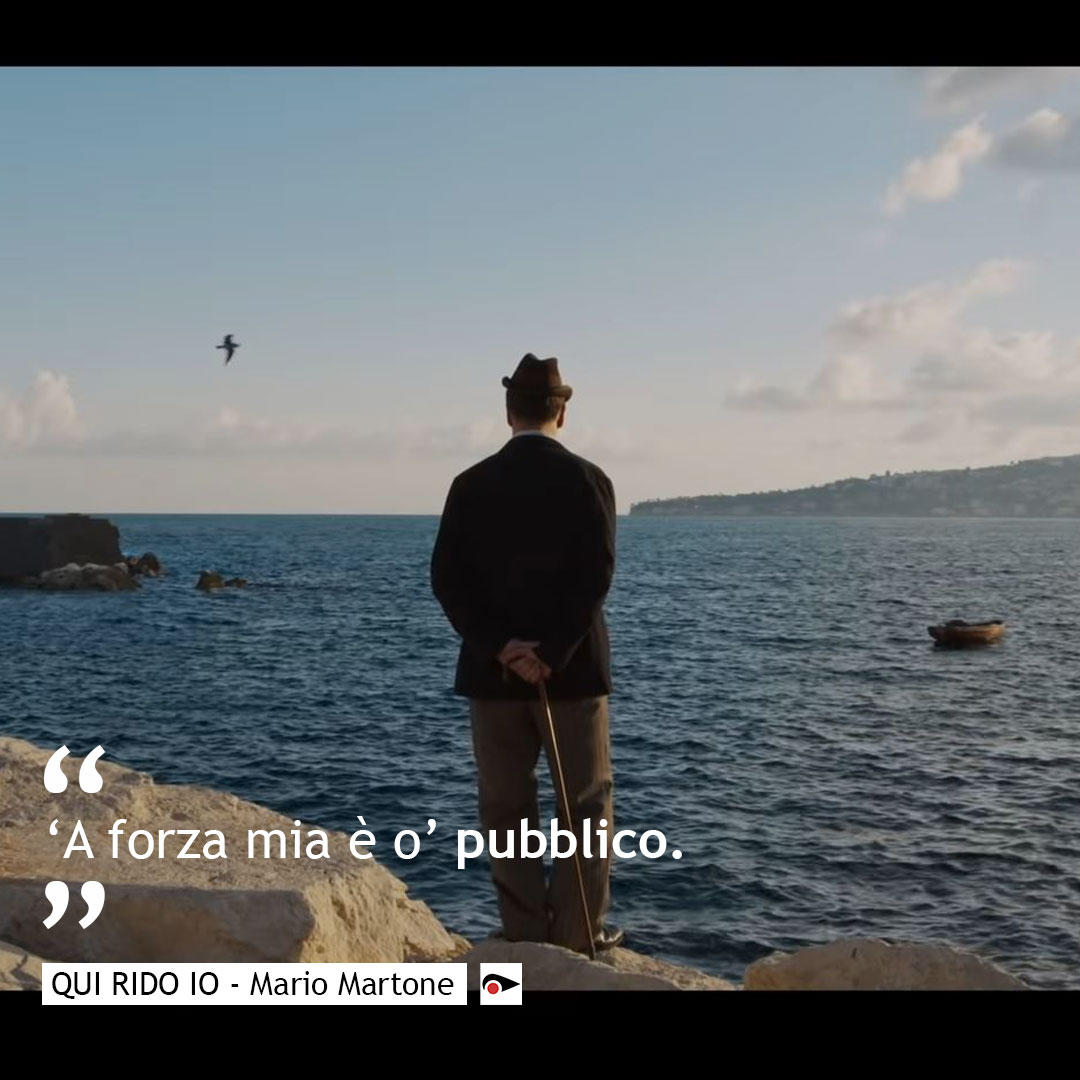
Mario Martone – The King of Laughter (original title: Qui rido io)


- Acting.
- Atmosphere.
- Energic and believable staging.

- The script has got some weaknesses.
Do we recommend it?
Yes, we do.
Our opinion on the film.
Despite a narrative drive that at times seems to move on sobbing rather than strongly tending towards an evolution that may seem natural – and despite some dialogues on what art is, which seems a little didactic – The King of Laughter perfectly captures the viewer into a highly credible atmosphere and at times also extremely pleasant.
A few dreamlike moments occasionally punch the film and deepen some features showing the cracks under the mask, as well as some shots betray the director’s pictorial taste (see the presentation of the De Filippo family with Cristiana Dell’Anna embedded in strongly pictorial compositions).
Particularly interesting is the scene in which Eduardo Scarpetta (Toni Servillo) is at the theater and watches “La figlia di Iorio” by Gabriele D’Annunzio: this scene reveals the creative process of the theatrical author and, with a vibrant editing, it demonstrates how two apparently distant narrative spectra such as drama and parody (in the characteristics of farce and grotesque) are actually very close, if not superimposable.
The actors.
A particular note should be given to the performances of the actors: The King Of Laughter is a choral film, full of excellent (and in most cases, credible) interpretations. A risk taken by Martone, due to the highly theatrical characteristic of the dialogues, which pays and returns a very high acting level (almost for all the performers). In particular, there is a moment in which the theatrical tone gives way to the power of the camera and the interpretative strength of its actors: following the disturbances created ad hoc for the staging of “Il figlio di Iorio”, Scarpetta suspends the staging of the parody and returns to offer the public one of his repertoire classic.
The audience in raptures is contrasted by a close-up of Servillo, who, remaining suspended between laughter (imposed by the staging) and crying (pushed from within), finally breaks that “spectatorial” and observational distance and makes the spectator (the cinematographic one) participate in what is the drama of the Scarpetta man: the man who had given the funeral to Pulcinella, has himself become a prisoner of a mask read with disdain by the “new” artists who limit themselves to a superficial reading of the his works.
A slow becoming misunderstood that Scarpetta knows very well – probably this is precisely the reason that led him to risk the parody of D’Annunzio’s work – as it is true that, symbolically, in a very quick exchange of words, Martone shows how Eduardo himself is the only one who understands that, albeit with different ways and customs, Gorky’s gift is due to the esteem that the Russian playwright has towards Scarpetta, rather than a gift bearing ill omen, as erroneously interpreted by others. Basically understanding something is going beyond one’s superficial (therefore full of prejudices) beliefs.
The De Filippos.
In the film there is also space for the “beginnings” of the De Filippo family, children never recognized by Scarpetta, and for a sort of “rewriting” of the past when Eduardo De Filippo claims to have told his brothers that they will never separate. A family forged in the “lie” and that find their freedom and their own personal dose of truth on the stage.
Why Watch It?
The King of Laughter is a vital film, but not only for the energetic tone of its staging, but also more subtly because it blends life itself with the theater and the subtexts of the theater become the unspoken of life.
At the bottom of the page you will find the trailer to decide for yourself whether to watch it or not.
Film Quote
Have you already had a look at our film quotes page? Who knows, if you are lucky, you will find a quote from one of your favourite films. What? You haven’t checked it out yet? Come and play with us!

Trailer:
Now, nothing left to do here, you just have to go and watch it, unless you have something to say about this movie and you want to share it with us on this platform. Feel free to leave a comment at the end of the page and say whatever you want about the film. On this site, we are always happy to host others’ opinions on cinema.
Something else?
To read more of these film “pills”, please visit our dedicated section. Or, if you’re after a more-in-depth look at some films and/or filmmaking techniques more than just a few words, please have a look at our Film Analysis page.